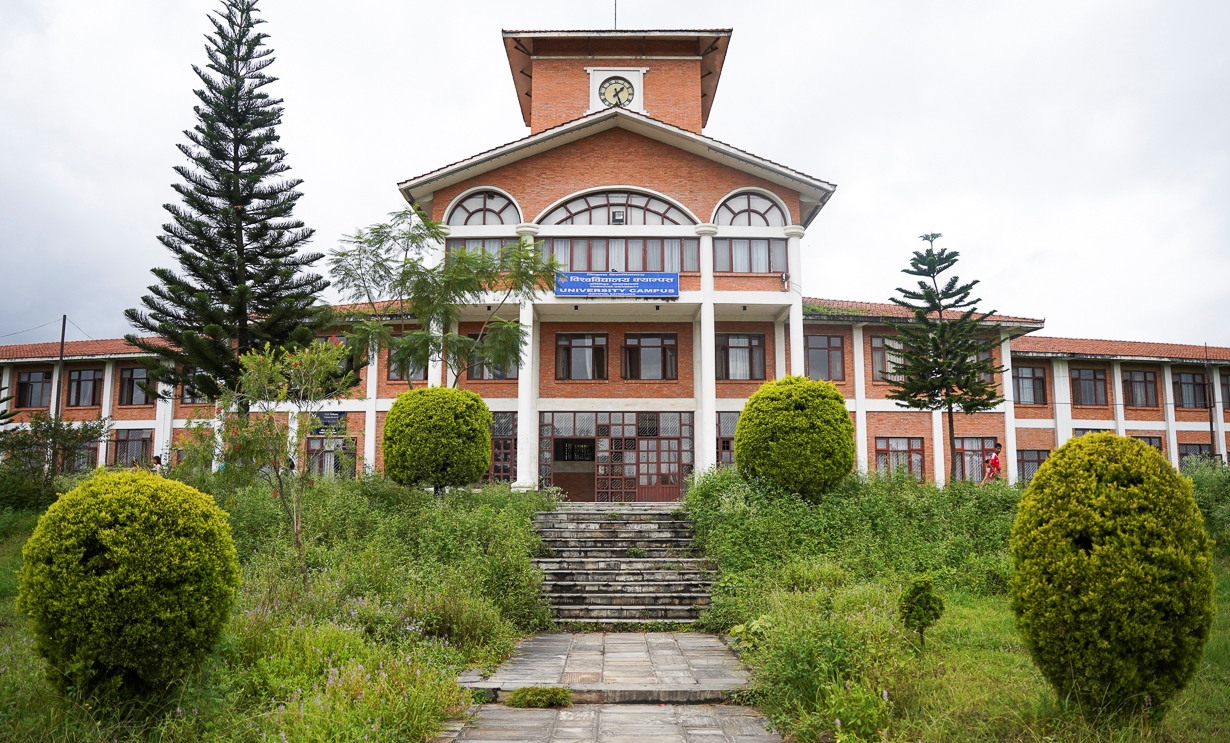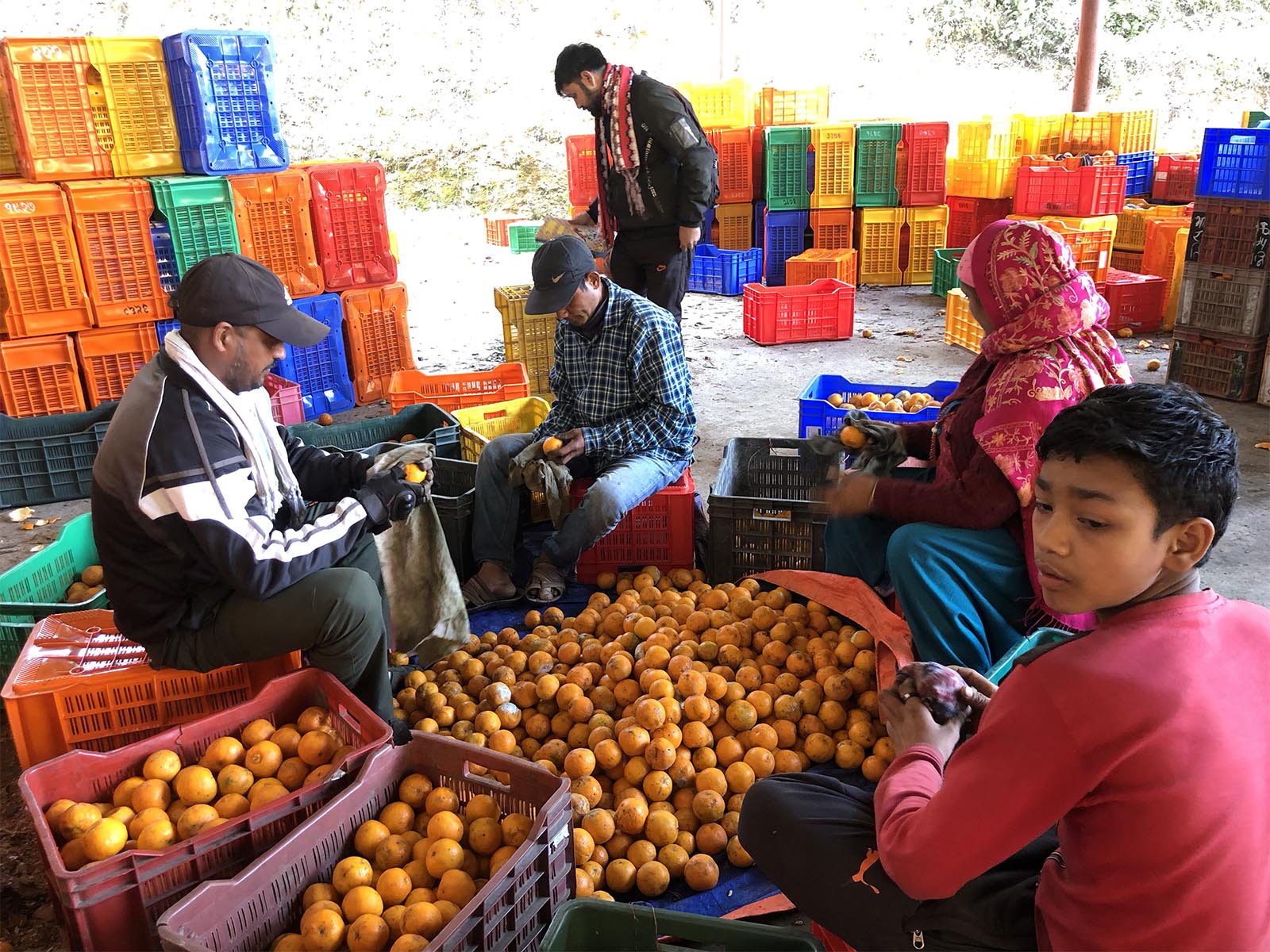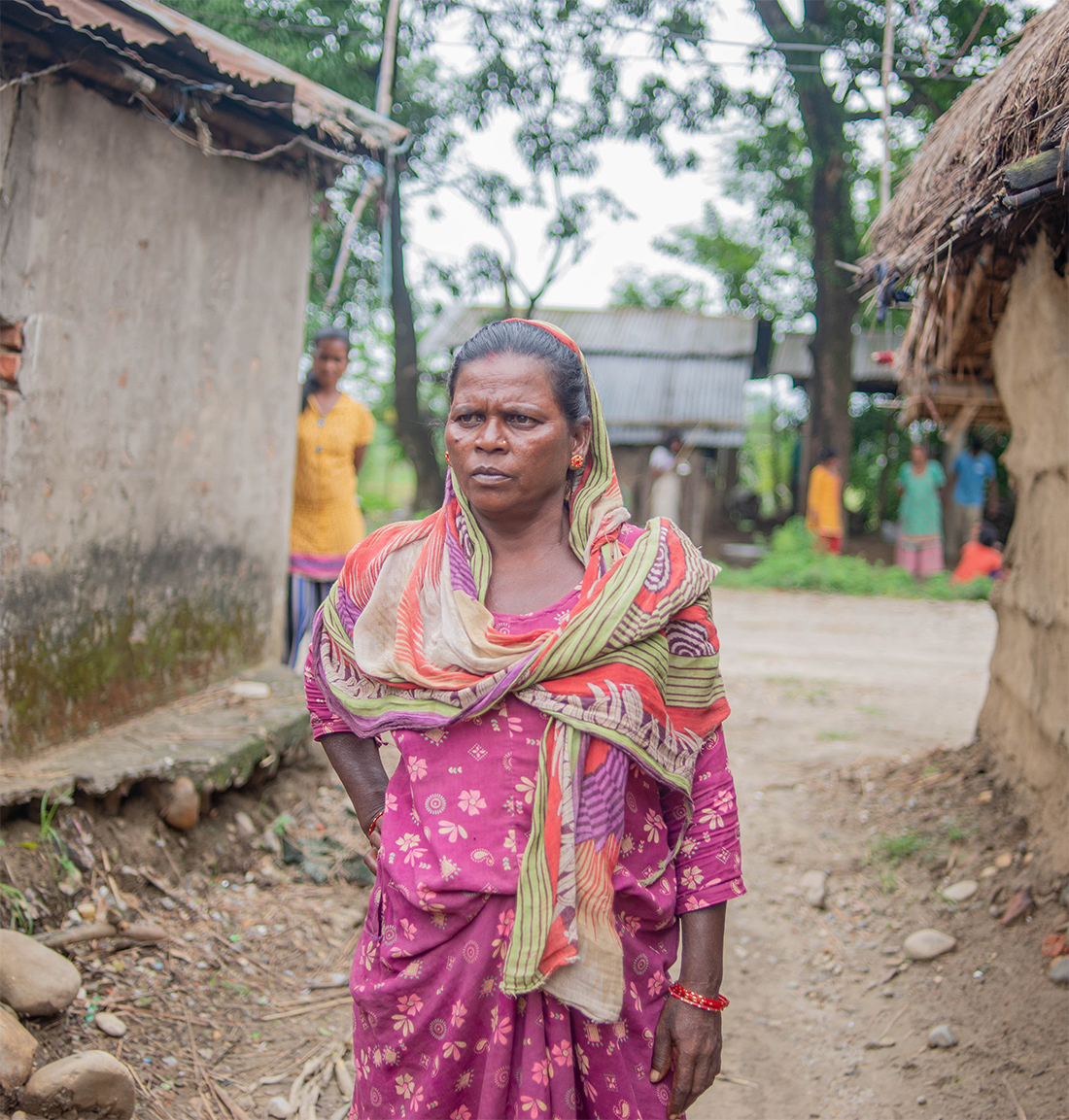In Bajura, migrant workers returning from India are left without food, shelter and deprived of medical treatment. Some of them were unable even to perform funeral rites of their loved one succumbed to Covid-19.
Prakash Singh: Center for Investigative Journalism-Nepal
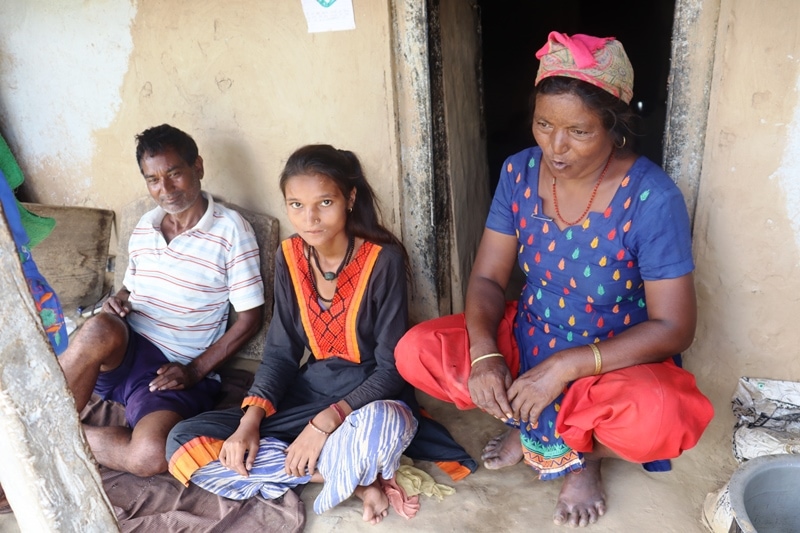
Dharma Sarki’s family in Triveni Ngarpalika.
Dharma Sarki had been working in India along with his family members since the last 20 years. In mid-April, he returned to his village, Jhalgaun of Triveni Municipality, after India enforced a nationwide lockdown to contain the spread of the coronavirus–something Sarki had never imagined.
Since Dharma does not own any piece of land or house in his ancestral village, his family is now taking shelter at a neighbor’s house. Before returning to his neighbor’s home, Sarki’s family spent 16 days in a quarantine facility centre. Released from quarantine they are now struggling for food and shelter.
“I had already sold my land so I’m now in a great crisis,” said Dharma adding, “I have no money. I’m just seeking help to survive. How long can I survive this way?”
Dharma and his family members had heard about the ministry’s plan to distribute relief to corona-affected people like him. But they haven’t received such relief so far. “We have heard that the relief for us is coming, but we haven’t got one,” he said, “We are not expecting it anytime soon either. Looks like hunger will kill us all before the virus does.”
The India returnee menial laborers complained that elected people’s representatives and local government were not listening to their problem. Initially, the village office had distributed relief materials but discontinued citing inadequate budget.
“Initially, we had distributed relief. Some India returnees were quarantined and others were still returning,” said Bhim Bahadur Thapa, ward chief of Triveni Municipality-8, adding, “Since municipal budget was already spent in arranging quarantine facility and other works, we couldn’t support India returnee migrant workers.”
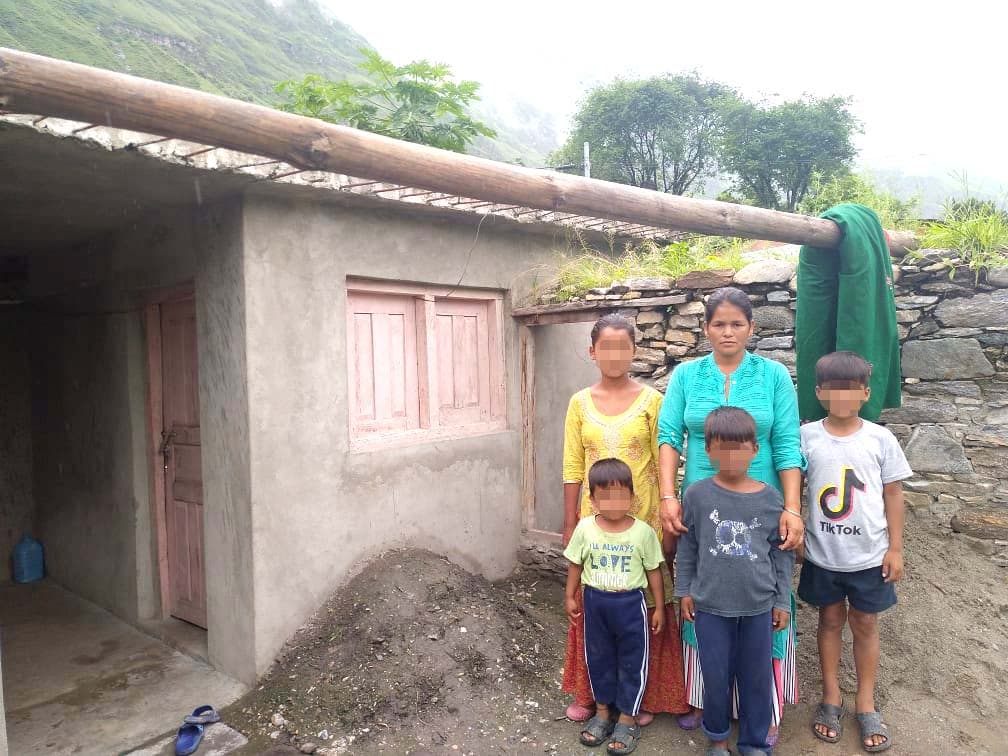
Ambika Kolti’s family from Budhinanda Nagarpalika-2. Her father died in Nepalgunj.
India returnee migrant workers are spread over different villages. Ambika Karki of Budhinanda Municipality-2 Kolti and her family members are few among many others. They have returned to their village after six years. Ambika and her husband, Ganga, were menial laborers in Delhi. Six of their children were staying together with them. On February 14, Ganga returned home to perform the last rites of his mom. When he was returning to India on March 25, he was trapped in lockdown.
Losing her job in India due to lockdown, his wife, Ambika, also came to Nepalgunj taking her children. They started living in a rented apartment in Nepalgunj as it was not possible to go to their home village. After spending two-and-half months, Ganga fell off from the roof and died. Then, Ambika returned to Bajura, where she spent 24 days in a quarantine facility arranged at Janaprakash Secondary School. Her family is currently taking shelter at a neighbor’s house. She has no land to build a house or do farming. Her children are bracing the risk of being malnourished.
“My husband is now dead. I’m worried about how to arrange food for children. It’s been really difficult to raise and educate them.”
Janesh Bhandari, a teacher in Bajura, said Ambika’s family is already reeling under a food scarcity. “We collected little money, pots and granted rice. But that’s not enough. Her family has been facing food scarcity again.”
Like Sarki and Karki, on April 16 Naule Nepali of Triveni-8 Kalapani had returned home together with six other family members after 10 years. Security guard Naule, his wife and five children were working in Okhla, India. The family returned home after they lost their job due to Covid-19. Since it’s been long his abandoned house back in the village has already collapsed. He has no additional land either.
Upon their arrival in their home village, the family was taken to quarantine facilities. Local authorities allowed them to go home after spending 20 days in quarantine facilities. Since his house was already damaged Naule’s family is now taking shelter at his elder brother’s house. They are surviving on mercy of relatives and villagers.
“I’m taking shelter at my brother’s house. But it’s been really difficult to arrange food.”
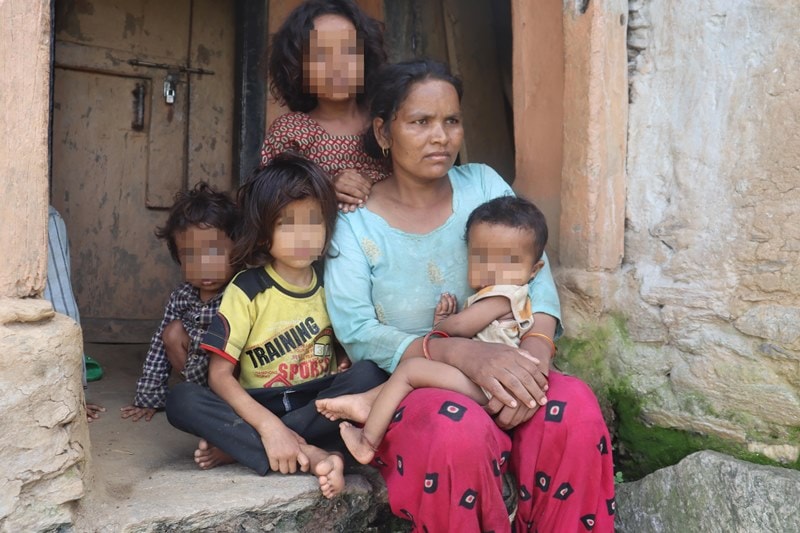
Prem Sarki’s family from Triveni Municipality-8
Naule’s wife, Radhika, is an ulcer patient. Due to the economic crisis she’s not been able to go to hospital. She has already finished the medicine that she used to take in India. Their three sons and two daughters, who were born within a gap of a short time period in India, look malnourished.
Local government is totally unaware of these family’s food, shelter and health problems. The family hasn’t received any sort of relief even if three months elapsed since they returned. “No work, no money. No support from the government. Only misery is in my life,” said Naule.
He feels uncomfortable to seek villagers’ help from villagers as they themselves are facing food scarcity. Starvation has already started to plague the village.
Prem Sarki of Kalapani, Bajura, is another India returnee migrant worker. He had been working there together with his wife for the last 20 years. His three sons and a daughter were also studying in Indian schools. “Everything was going well. I had never imagined that I would return to Nepal this way but coronavirus forced us to return. And we are now left in the lurch,” said Prem.
His six-member family is now taking shelter at Kalu Sarki’s house–a neighbor–and managing household expenses has become a herculean task. Prem says even local shopkeepers have now stopped giving them food in credit, they want cash. “I had sold my entire parental properties before going to India. Currently, neither I have a job in India nor house or land in Nepal.”
Prem wants to return to India soon, leaving his family members in the village. But it’s not sure when the Covid-19 crisis will end and he will return to his job destination.
No money no funeral rites
Kalamati Damai, who had been living in India for the last 28 years, returned home on June 10 along with her other five family members after the coronavirus chased them. Before reaching home Kalamati’s family was taken to quarantine facilities set up at Badimalika-2 Bhaunera-based Satyabadi Higher Secondary school. Kalmati’s husband, Bhupendra, committed suicide two days after he was taken into quarantine facilities.
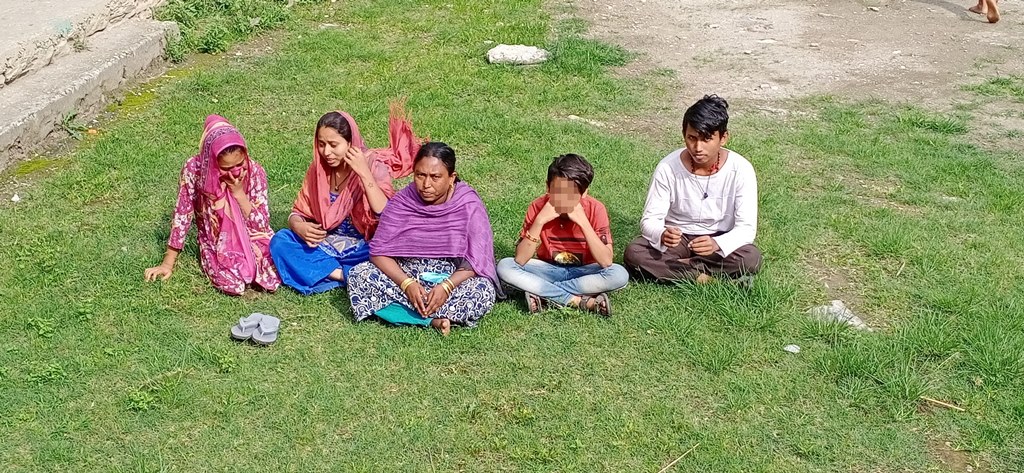
Kalamati Damai, from Badimalika Municipality-2, Bajura with her children outside Satyavadi Medium School’s quarantine facility. Kalamati’s husband Bhupendra Damai committed suicide while in quarantine.
Hw was an asthma patient, who was struggling to overcome the coronavirus-induced crisis. Kalamati used to work as a domestic worker in India and that’s how he used to pay for his medical and other expenses. Due to coronavirus she lost her job and all of her family members rushed home seeking survival options.
Kalawati’s life is now in despair. Sheland does not have any land in her ancestral village. Having no money Kalawati couldn’t perform the last rites of her husband properly. “I couldn’t perform last rites as I had no money to buy a piece of white cloth,” Kalamati said as tears rolled down her cheeks. She buried her husband beside the quarantine centre on her own.
Even after the death of her husband Kalamati and her children spent 25 days at a quarantine center. The municipality used to provide them with food while they were quarantined. Her real suffering started when she was released from the quarantine center. Her old house was already reduced to dust. She is now taking shelter at the villager’s house, and locals have been giving them meals.
“Husband died. How can I raise these four children?”
Considering Kalamati’s poor condition, the ward office had given her family a sack of 30-kg rice. “Due to poverty the family is struggling for survival. But it’s not sure how long they will survive this way” said Dammar Mahat, the ward chief.
These are just a few examples of people returning to Bajura after losing employment in India because of the coronavirus. According to Bajura District Health Office, 8,381 people were quarantined and sent to home since lockdown was enforced in March 2020.
“India returnee migrant workers have not received any relief. In the beginning, we had provided travel expenses for some Dalits. The rest have not received anything,” said Shristi Regmi, deputy mayor of Budhinanda Municipality.
The municipality distributed relief at a time when most India returnees were taken into quarantine. “Many people came from India after relief was distributed. Migrant workers who returned together with their family members after losing their jobs are now facing an acute food crisis,” said Hari Nepali, an executive council member of Triveni Municipality.
Except Budhiganga all eight municipalities of Bajura have introduced an annual budget for this fiscal year. But none have prioritized the problem of India returnee migrants. “Since floods and landslides remain our key disasters, we are now unable to prioritize other sectors,” said Padam Baduwal, the mayor of Badimalika.

